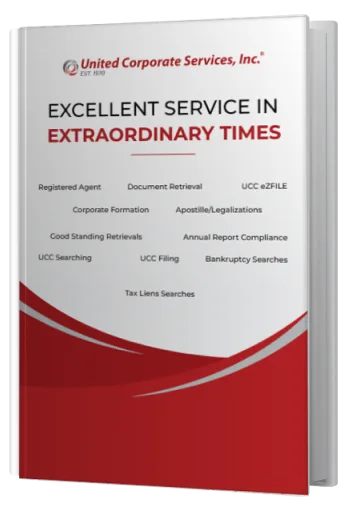Visit the CTA Reference Center to receive the latest updates on the Corporate Transparency Act. Click here!
Visit the CTA Reference Center to receive the latest updates on the Corporate Transparency Act. Click here!
Submitted by UCS on March 17, 2022

An LLC can be either a member-managed LLC or a manager-managed LLC. In most states, an LLC is member-managed unless it is designated as a manager-managed LLC within its Articles of Organization and/or Operating Agreement/Limited Liability Company agreement. Members of an LLC can manage the company’s business without losing their limited liability status by acting as managers. Alternatively, they may appoint one or more managers to run the business. This blog points out the differences between the two designations.
What is a Member-Managed LLC?
In a member-managed LLC, each member has equal rights in the management of the business of the LLC, regardless of the size of the member’s capital contribution. All matters relating to the business of the LLC will be decided by a majority vote of the members according to section 404(a) of the ULLCA.
What is a Manager-Managed LLC?
In a manager-managed LLC, the members and the nonmembers who are designated managers control the management of the LLC. The members who are not managers have no rights to manage the LLC unless otherwise provided in the operating agreement. Depending on statutory requirements of the jurisdiction of formation, a manager could also be another limited liability company or a corporation.
In a manager-managed LLC, each manager has equal rights in the management and conduct of the company’s business. A manager must be appointed by a majority vote of the members. Managers may also be removed by a majority vote of the members according to section 404(b)(3) of the ULLCA.
While a manager of an LLC has the authority to conduct business on behalf of the LLC, such as binding the LLC to contracts, there are certain actions that only members can authorize such as:
1. Amend the operating agreement
2. Admit new members
3. Amend the articles of organization
4. Consent to merge to the LLC with another entity
5. Sell, lease, or dispose of LLC’s property
6. Consent to dissolve the LLC
7. Remove members
Whether an LLC is a member-managed or manager-managed, the designation has important consequences for determining the fiduciary duties owed by members to the LLC.
For additional questions regarding the structure of a Limited Liability Company feel free to contact a UCS Client Service Service Representative at (800)899-8648 or info@unitedcorporate.com.

Written by Our Team
United Corporate Services (“UCS”) provides registered agent services in all 50 states and U.S. territories as well as in select international jurisdictions. With 50 plus years of experience in the legal services industry, UCS partners you with a highly skilled staff of Client Service Representatives who can help with navigating through the complexities of forming and maintaining companies for yourself or your client.
Related Posts
March 15, 2024
In 2019, a new regulation was implemented in Canada, mandating federally incorporated, privately held companies incorporated under the Canada Business Corporations Act (CBCA) to establish and maintain comprehensive records of in...
Read Full PostFebruary 14, 2024
In this guest blog post, we present an article authored by Andrew J. Kimball, an Associate at Norris McLaughlin, P.A., and Peter D. Hutcheon, Of Counsel at the same firm. The article delves into the necessary measures that financi...
Read Full PostDecember 15, 2023
In previous installments of this blog series, we have addressed the immediate changes taking effect in January of 2024. The Corporate Transparency Act (“CTA”) not only alters the process of establishing a new corporate entit...
Read Full PostUncover the nuances between a Principal Office address and a Registered Agent address or obtain useful insights on naming a Secured Party in a UCC Financing Statement, among other captivating subjects.
Download a Free Copy of Your e-Book Now!